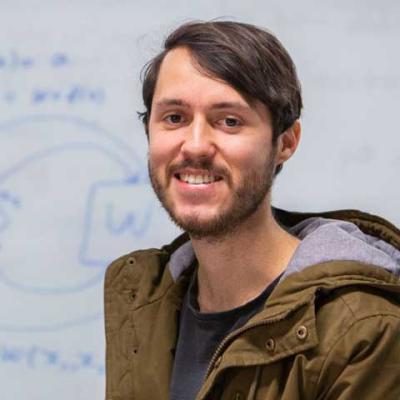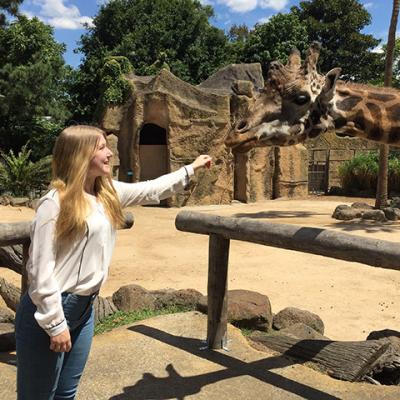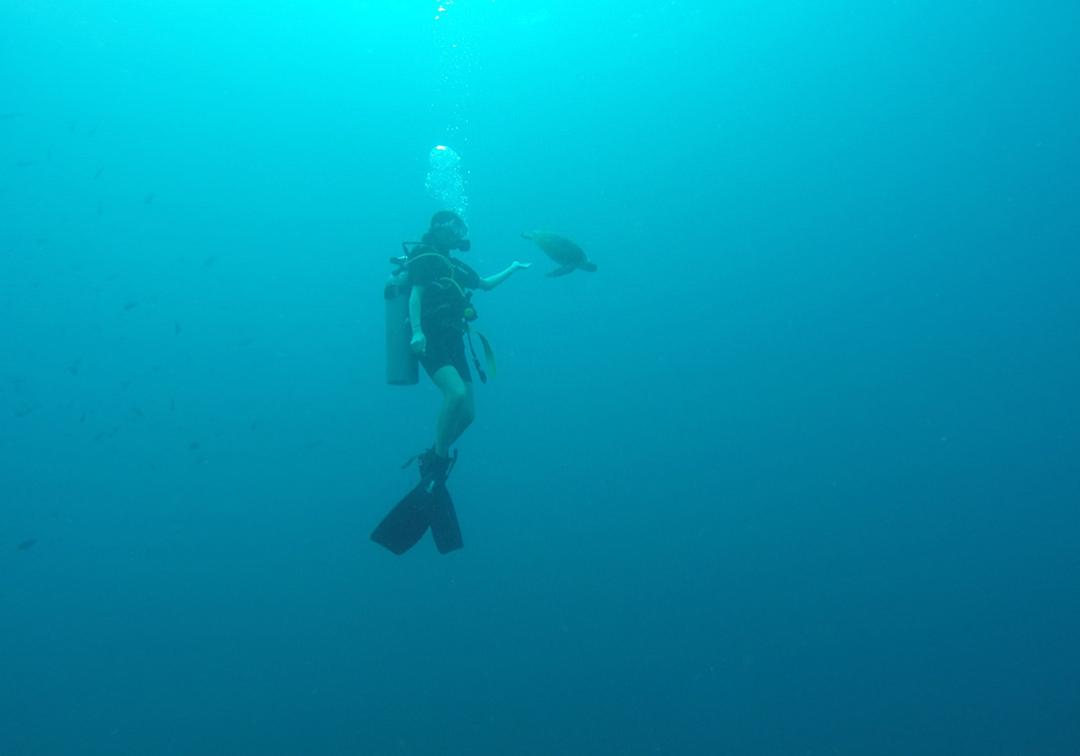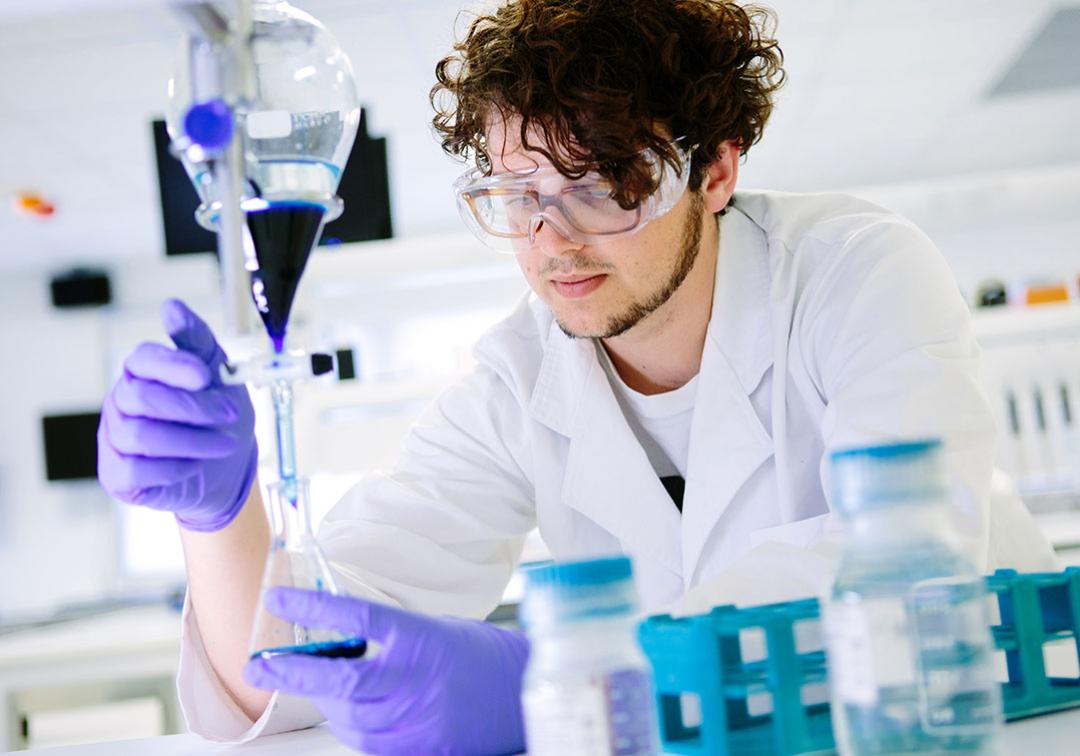
Bachelor of Advanced Science (Honours)
Overview
Take your scientific potential to the next level and sharpen your critical thinking and analytical skills for a career in research and industry with this elite 4-year program.
The Bachelor of Advanced Science (Honours) offers exclusive research training, equipping you with the expertise to excel in scientific discovery and beyond.
Develop deep disciplinary knowledge, broad scientific literacy, and exceptional problem-solving and communication skills.
Surround yourself with high-achieving peers, expanding your interdisciplinary expertise and career potential.
Choose from 23 majors and more than 30 minors, or diversify with options in languages, economics, design and more.
You’ll complete a full-year research project in one of more than 30 fields of study, working alongside leading scientists to prepare for a future in cutting-edge research.
This degree opens doors to roles in research, government, and industries spanning health, environment, finance and more. It’s also an ideal pathway to a PhD or a career in medicine.
- Location
- St Lucia
- Duration
- 4 Years (or part time equivalent)
- Start Semester
- Semester 1 (23 Feb, 2026), Semester 2 (27 Jul, 2026)
- QTAC Code
- 731901
- Program Code
- 2516
- AQF
- Level 8
- Location
- St Lucia
- Fees
- A$54096
- Duration
- 4 Years
- Start Semester
- Semester 1 (23 Feb, 2026), Semester 2 (27 Jul, 2026)
- Semester dates for 2027 are yet to be confirmed
- QTAC Code
- 731901
- Program Code
- 2516
- CRICOS Code
- 079390F
- AQF
- Level 8
Program highlights
Program highlights
- Learn from world-leading scientists and contribute to UQ’s groundbreaking research.
- Graduate with an honours qualification that demonstrates your expertise and work-ready skills.
- Set yourself up for advanced research opportunities, including a PhD, to elevate your career.
Majors
Tailor your studies to suit your goals. This program offers these options:
- Anatomy
- Applied Mathematics
- Applied Mathematics
- Archaeological Science
How you'll learn
Your learning experiences are designed to best suit the learning outcomes of the courses you choose.
- Lectures
- Tutorials
- Work placements
- Overseas study
- Research experience
- Laboratory work
- Fieldwork
- Seminars
- Workshops
What you'll study
At UQ, degrees are called 'programs' and subjects are called 'courses'. Here's a sample of the courses you could study in this program:
- Advanced Biochemistry and Molecular Biology
- Advanced Genetics
- Condensed Matter Physics: Electronic Properties of Crystals
- Advanced Organic Chemistry
Career possibilities
Our programs prepare you for your first job and beyond. Depending on which major you choose, here are some of the careers you could be on your way to:
- Biochemist
- Embryologist
- Palaeo-environmental scientist
- Biodiversity project officer
- Exploration technician
- Biomedical scientist
- Wildlife management officer
- Mine geologist
- Quantitative researcher
- Materials scientist
Average annual salary range
Environmental Scientist
seek.com.au
Average annual salary range
Data Scientist
seek.com.au
Next steps after graduation
You will find expanding career possibilities in diverse roles within the government, health, corporate, environmental and financial sectors, and in research organisations globally.
Advanced science is also an excellent pathway into medicine or a higher degree by research, such as a PhD.
You can apply your skills in a range of industries, including:
- research organisations
- government agencies
- industrial organisations
- universities
- hospitals and the healthcare system
- marine preservation authorities
- secondary schools (with further study)
- environmental organisations including planning and site assessment
- operations research and logistics consultancies and corporations
- financial enterprises.

I really enjoyed the hands-on research experience in interesting areas of physics that I was able to take part in. It is really exciting to be able to work with professional researchers as an undergraduate student.

I love understanding how the world works. Studying Advanced Science has been really satisfying as it's challenged me to learn and apply complex mathematical techniques to understand concepts in physics.

The advanced science program has helped me develop a well-rounded knowledge base in chemistry, mathematics and programming that I've been able to apply to a surprisingly large portion of my life – including a business I co-created at the end of my second year.

This program challenged me to develop in depth research, critical thinking and problem-solving skills. I was equipped with the most recent content knowledge by my world-class teachers, and the research experiences involved in my program enabled me to become a confident idea creator and synthesiser.

I really enjoyed the hands-on research experience in interesting areas of physics that I was able to take part in. It is really exciting to be able to work with professional researchers as an undergraduate student.

I love understanding how the world works. Studying Advanced Science has been really satisfying as it's challenged me to learn and apply complex mathematical techniques to understand concepts in physics.

The advanced science program has helped me develop a well-rounded knowledge base in chemistry, mathematics and programming that I've been able to apply to a surprisingly large portion of my life – including a business I co-created at the end of my second year.

This program challenged me to develop in depth research, critical thinking and problem-solving skills. I was equipped with the most recent content knowledge by my world-class teachers, and the research experiences involved in my program enabled me to become a confident idea creator and synthesiser.
Events
See all events
9 June
Master of Physiotherapy information webinar
Stories
See all stories
Uni life
What's it really like to study science at UQ?
9-minute read
Stories
See all stories
Uni life
What's it really like to study science at UQ?
9-minute read

Careers
What jobs can you do with a Bachelor of Science?
7-minute read
Entry requirements
Prerequisites
- General English subject (Units 3 & 4, C)
- Mathematical Methods (Units 3 & 4, C)
- Two of Agricultural Science, Biology, Chemistry, Earth and Environmental Science, Specialist Mathematics or Physics (Units 3 & 4, C), at least one of which must be Biology, Chemistry or Physics.
Prerequisites
- General English subject (Units 3 & 4, C)
- Mathematical Methods (Units 3 & 4, C)
- Two of Agricultural Science, Biology, Chemistry, Earth and Environmental Science, Specialist Mathematics or Physics (Units 3 & 4, C), at least one of which must be Biology, Chemistry or Physics.
Minimum entry score
Select where you studied and your qualification to see the minimum entry score you need to be considered for this program.
Use the minimum entry score as a guide. Your score must be at least equivalent to the required Australian Year 12 ATAR score. Entry requirements are subject to change.
Equivalent subjects
| Subject | Qualification equivalent |
|---|
Entry score threshold
| ATAR / Rank | IB |
|---|---|
| 92 | 36.75 |
These are the lowest adjusted scores we made an offer to in Semester 1, 2025. Entry scores are based on the most recent Semester 1 intake and are updated in April each year. Meeting the entry score threshold doesn't guarantee admission.
Guarantee your place at UQ: If you meet our guaranteed minimum ATAR you could secure an offer for your preferred program.
English language requirements
IELTS overall 6.5; reading 6; writing 6; speaking 6; listening 6. For other English Language Proficiency Tests and Scores approved for UQ
TOEFL iBT (including Paper Edition) - Overall 87, listening 19, reading 19, writing 21 and speaking 19.
PTE Academic - Overall Score of 64 and 60 in all sub bands.
BE - A minimum overall grade of 4 plus a minimum grade of C in all macro skills.
CES - Overall 176 and 169 in all sub bands.
OET is not accepted.
There are other ways to meet the English language requirements. For some programs, additional conditions apply.
Student visas
International students who are accepted into full-time study in the Bachelor of Advanced Science (Honours) are eligible to apply for an Australian student visa (subclass 500).
There are a number of requirements you must satisfy before a visa is granted, including the Genuine Student (GS) requirement.
Entry score range
This table shows the range of entry scores for recent secondary students offered a place in the B Advanced Science (Hons) for Semester 1, 2025
| Without adjustments | With adjustments | |
|---|---|---|
| Highest | 99.95 | 99.95 |
| Median | 96.25 | 98.3 |
| Lowest | 87.55 | 92 |
Who you'll study with
Here's a snapshot of our student intake for this program in Semester 1, 2025:
| Applicant background | Number of students | Percentage of all students |
|---|---|---|
(A) Higher education study | 7 | 4.8% |
(B) Vocational Education and Training (VET) study | <5 | <5 |
(C) Work and life experience | 0 | 0% |
| (D) Recent secondary education | ||
| 132 | 90.4% |
| <5 | <5 |
| <5 | <5 |
International students | <5 | <5 |
Total | 146 | 100% |
"<5" — The number of students is less than 5.
N/A — Students not accepted in this category.
N/P — Not published. The number is hidden to protect the privacy of students in other cells.
Need help meeting the entry requirements?
We can help you meet the minimum entry score, subject prerequisites or English language requirements for your preferred program.
If you haven't studied the prerequisites or need to improve your entry score, we can help.
Majors and minors
Majors
Tailor your studies to suit your goals. This program offers these options:
Minors
Tailor your studies to suit your goals. This program offers these options:
Fields of study
Tailor your studies to suit your goals. This program offers these options:
Majors
Tailor your studies to suit your goals. This program offers these options:
Minors
Tailor your studies to suit your goals. This program offers these options:
Fields of study
Tailor your studies to suit your goals. This program offers these options:
Fees and Scholarships
Indicative annual fee
Approximate yearly cost of tuition (16 units). Your fees will vary according to your selected courses and study load. Fees are reviewed each year and may increase.
$9,690
2026
Approximate yearly cost of tuition (16 units). Your fees will vary according to your study load. Fees are reviewed each year and may increase.
AUD $54,096
2026
Additional costs
- This program includes majors and minors that may require completion of one or more field trip courses that may incur additional costs. Please check the course descriptions for more information.
Government assistance
Financial aid
As an international student, you might be eligible for financial aid – either from your home country, or from the Australian Government.
HECS-HELP
Domestic places in the Bachelor of Advanced Science (Honours) are Commonwealth supported, as long as you meet all Commonwealth supported place eligibility requirements.
This means the cost of your education is shared between you and the Australian Government. Instead of tuition fees, Commonwealth supported students pay what are called student contribution amounts.
If you have a Commonwealth supported place, you may also be eligible for HECS-HELP. This is an Australian Government loan scheme to assist eligible students with the cost of their student contribution amounts.
Centrelink support
The Australian Government offers a number of income-support payments to eligible Australian university students.
Scholarships
You may be eligible for more than 100 scholarships, including:
How to apply
Applying online
If your senior schooling is from outside Australia, you can submit your application to UQ. Or, if you prefer, you can use an approved UQ agent near you.
The program code for the Bachelor of Advanced Science (Honours) is 2516.
How to apply for undergraduate study
If your senior schooling is from Australia
Submit your application to the Queensland Tertiary Admissions Centre if you're an international student who is currently studying:
- Australian Year 12 (in Australia or another country), or
- the International Baccalaureate in Australia.
The QTAC code for the Bachelor of Advanced Science (Honours) is 731901.
Applying through QTAC
All domestic applications should be submitted to the Queensland Tertiary Admissions Centre (QTAC).
The QTAC code for the Bachelor of Advanced Science (Honours) is 731901.
Important dates
If you’re studying Year 12 in Australia, go to the QTAC website to check the closing date for this program.
If you’re applying to UQ, the closing date for this program is:
- To commence study in semester 2 - May 31 of the year of commencement.
- To commence study in semester 1 - November 30 of the previous year.
Visa processing times vary. Apply and accept your offer as early as you can.
To learn more about UQ dates, including semester start dates, view the Academic Calendar.
Important dates
To check the closing date for this program, go to the QTAC website.
To learn more about UQ dates, including semester start dates, view the Academic Calendar.
Admissions schemes
Applying to university can be both exciting and daunting, which is why we’ve tried to make the process as simple as we can.
We have several schemes in place to improve your chances of getting a place at UQ.
Pathway options
A rank or score doesn’t determine your potential.
If you're not offered a place in your first-choice program – or if you don't meet the entry requirements – you still have a number of options.
Aboriginal and Torres Strait Islander applicants
For support with applying – or if you have any questions about university life – get in touch with our Aboriginal and Torres Strait Islander Studies (ATSIS) Unit.
Explore other programs
Bachelor of Science
Bachelor of Biotechnology
Bachelors of Science / Arts
Bachelor of Advanced Finance and Economics (Honours)
Express yourself. And your interest.
They say choosing a degree is hard, which is why we've made it easy. Register your interest and we'll send you everything you need to know about applying to UQ.
We will use your information to keep you informed about UQ programs, news, events and scholarships. By submitting this form, you consent to the terms of UQ's Marketing consent and privacy notice.





